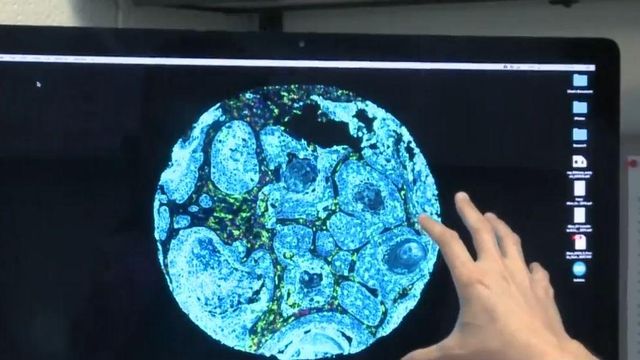UNC researchers make break-through in lung cancer research
With lung cancer as the leading cause of cancer deaths in the United States, one UNC cancer researcher may have found a key reason why the disease is so prevalent.
Posted — UpdatedThe discovery could lead to new drugs and strategies that may help with developing treatments for other cancers, researchers say.
“What we were finding was that the patients whose tumors were full of these immune cells were dying faster,” he said.
The "blue" in microscopic images is a tumor called "lung squamous carcinoma,” which accounts for about 30 percent of lung cancer cases.
It attracts the green and red immune cells, including a protein called "Factor 13,” known for blood clotting, like in a bleeding vessel.
Immune cells are supposed to help the body fight tumors and other ailments. foes like tumors.
The findings, which are published in the Nature Communications journal, could lead to new cancer fighting strategies.
“So, there's drugs already available that we are now planning to take to clinical trial that we are actually going to use to block these immune cells,” Pecot said.
Simple blood thinning medications may also help with treatment.
Researchers said the challenge is to determine which lung cancer patients could benefit and whether the therapies may also apply to other types of cancers.
Pecot said although lung cancer has a reputation for being the most deadly cancer, he said because of great strides in research, and patients have a chance for a cure.
Related Topics
• Credits
Copyright 2024 by Capitol Broadcasting Company. All rights reserved. This material may not be published, broadcast, rewritten or redistributed.





